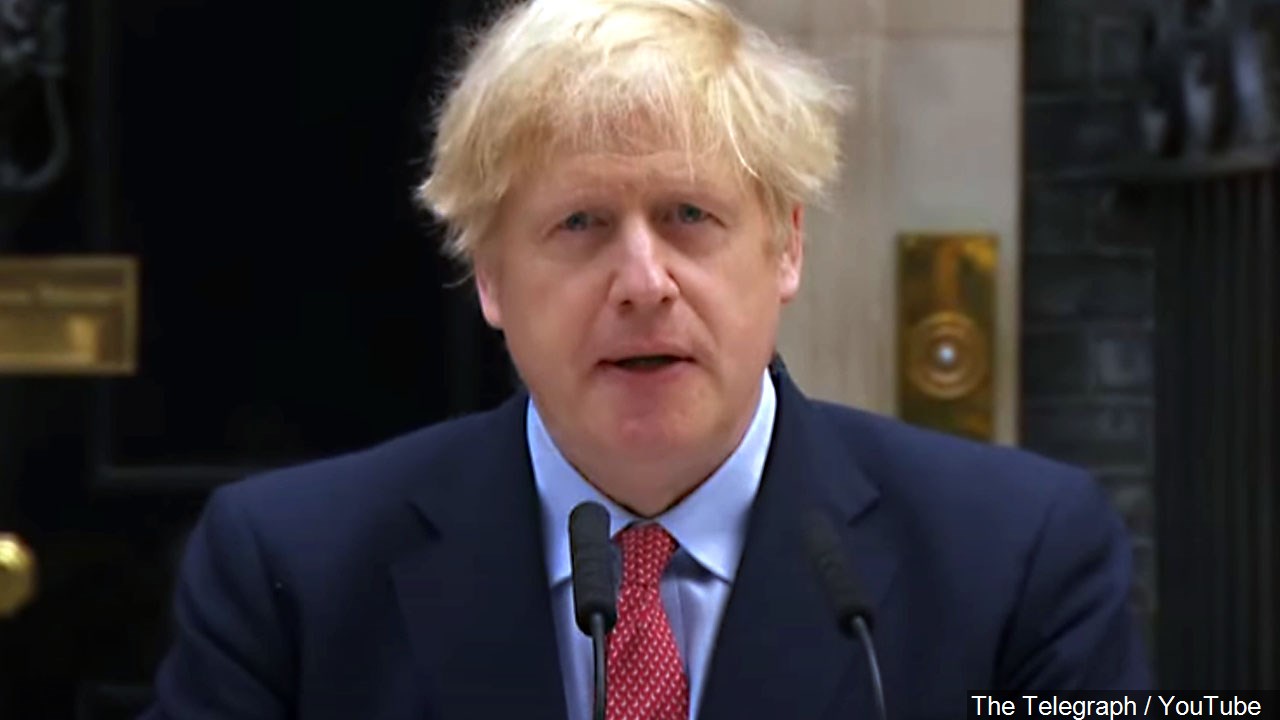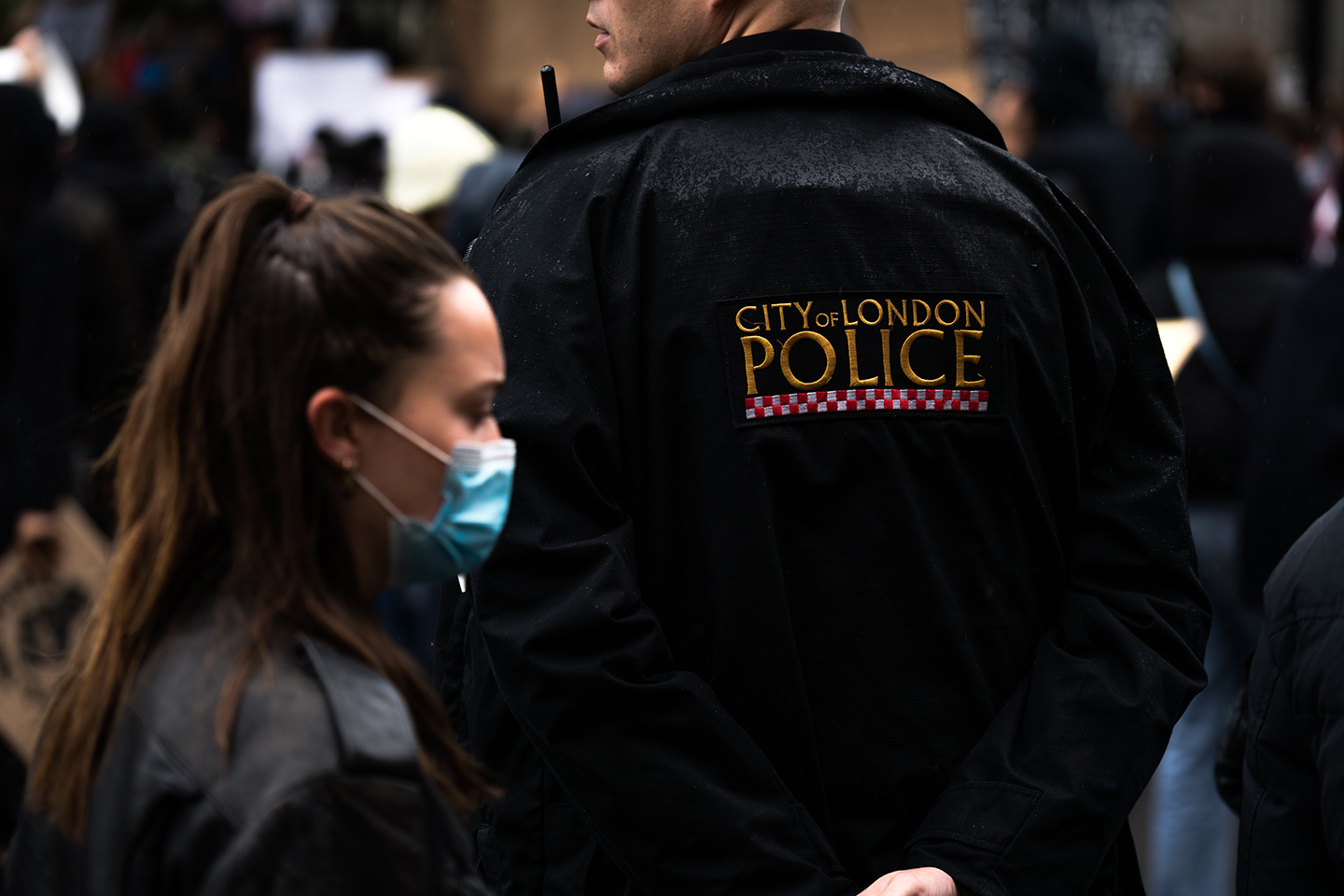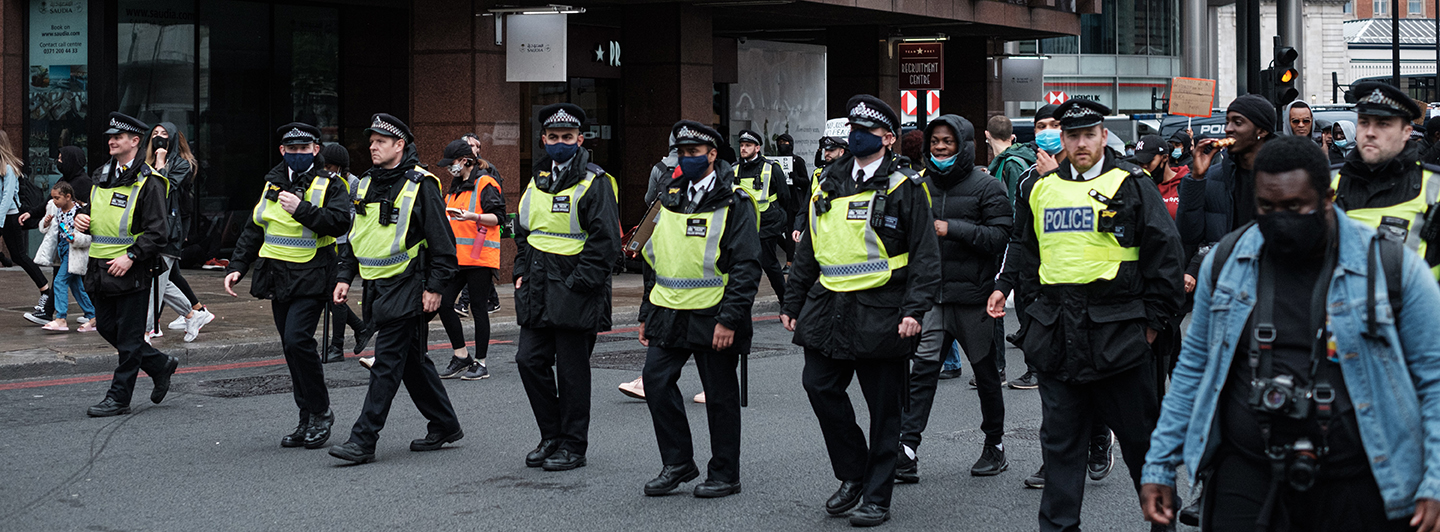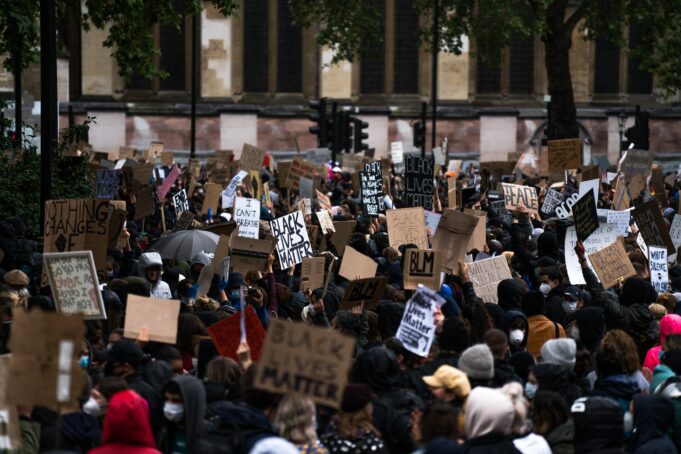Proposed legislation giving police sweeping powers to decide whether protests are justified, the power to impose start and finish times and even the right to disband one-person protests has led to nationwide protests.
The legislation includes vague criteria such as being “too loud” or a “nuisance” as being sufficient justification for any action undertaken by UK police during protests.
The protestors feel that the Police, Courts, Sentencing and Crimes bill violates their right to free speech and right to assembly.
Laws have also been passed by the government which would result in undercover agents being granted Criminal Conduct Authorizations authorizing them, as the name implies, to engage in criminal conduct including rape, murder and torture without any legal culpability.
One controversial bill, the Overseas Operations Bill, stipulates a statute of limitations on war crimes prosecutions against British troops, effectively legalizing war crimes, including torture, rape and other crimes.

Currently people all over Britain are out protesting against a controversial new law that would essentially make protesting illegal and slap harsh sentences on those who fail to comply.
The movement called Kill the Bill seeks to stop this legislation while it’s still in passage through Parliament. However, in recent months the United Kingdom also passed two other laws that effectively and explicitly allow undercover agents in Britain to commit any crime and give British troops immunity from war crimes prosecutions, the latter of these has gone largely unnoticed by the British public at large.
The Police State
The British government has spent the last few months enacting or attempting to enact extremely worrying legislation.
These bills will completely destroy any shred of Britain’s democracy. There are three bills, two of which have already been passed and the third is currently pending, which will completely alter British democracy.
Although there was considerable debate in Parliament, these controversial and worrying bills were barely covered by the mainstream media.
Police, Crime, Sentencing and Courts Bill
The first cause for concern is Police, Crime, Sentencing and Courts Bill, also known as the anti-protest bill. This is the bill at the center of the kill the bill protests that are currently underway all over the United Kingdom.

The second bill is the Covert Human Intelligence Sources, CHIS, Act, also nicknamed the Spy Cops bill.
And finally, the third is the Overseas Operations Act 2021.
Now, despite the fact that these bills are extremely archaic, authoritarian and threaten civil liberties, along with international law, the British public is almost completely unaware of their existence, with perhaps the sole exception being the anti-protest bill simply because of the widespread unrest and protests that it has caused in the country.
On March 17, 2021, a vigil was held for 33-year-old Sarah Everard, whose body was found earlier that month in London.
Wayne Couzens, 48, a serving officer in the London Metropolitan Police is accused of murdering her and is currently in custody pending trial.
The largely peaceful vigil turned violent when police attempted to disperse and shut down the event.
Scenes of women being violently dragged, arrested and manhandled by the police were met with disgust and shock. The vigil, and the violent arrests that took place there, occurred just as a new piece of legislation was being introduced, which helped spark the kill the bill movement.
In March 2021, Britain’s Tory government under Boris Johnson introduced the Police Crime, Sentencing and Courts Bill.
The goal of this mammoth piece of legislation is essentially to shake up the criminal justice system in England and Wales.
The reason people are so upset about it is because it gives the police sweeping new powers where they can randomly decide whether a protest is justified or unjustified, and shut it down on the spot. This even includes protests by a single person, not only that but the police would also be able to impose a start and a finish time.

The criteria proposed for shutting down a protest includes vague arbitrary language like being “too loud,” or “a nuisance.”
Home Secretary Priti Patel when asked about what these things mean, couldn’t even give a straight answer.
People who refuse to comply with police orders can be fined up to 2,500 pounds (about $3,500.) The punishment for defacing or damaging memorials has been increased from three months to 10 years.
This comes in the wake of Black Lives Matter protests in the summer of 2020 when the statue of slave trader Edward Colston was thrown into the Bristol docks.
In order to help ease the passage of this bill through Parliament, Prime Minister, Boris Johnson, as well as Home Secretary, Pritti Pattel, have deflected by pointing to other things in the bill that would give life sentences to killer drivers, for example, or harsher sentencing for premeditated child murder and serious violence against emergency workers.
But this doesn’t address the concerns with giving police sweeping powers to disband protests, given that free speech and the right to free assembly are considered pillars of a liberal democracy, many view the legislation as authoritarian and a violation of the Human Rights Act.
As a result, protests have erupted in response all over Britain including London, Bristol, Birmingham, Liverpool and other major cities, with hundreds being arrested and detained by police almost weekly.
Currently, the anti-protest bill has passed its first and second readings and it’s at the Committee stage. While this act is currently still pending, there are two others that are just as dangerous that have been largely unnoticed and unreported, while having made their way through Parliament and becoming law.
The Covert Human Intelligence Sources bill, or CHIS Bill, which is also nicknamed the Spy Cops Bill, gives undercover agents permission to commit crimes through a so-called Criminal Conduct Authorization. This could include rape, torture, murder, and other violent crimes.
These criminal conduct authorizations are not just for MI5, Britain’s domestic security service, but also for any police force in Britain. This includes agencies like the gambling Commission, the Food Standards Agency, the Home Office, the Ministry of Justice, and several other government departments.
Undercover officers can commit criminal acts, if it’s in the interest of national security, and also in the economic interests of the United Kingdom. Unions and other direct action groups have previously been targeted in the past by undercover police and infiltrated.
We’ve seen police disproportionately target left wing groups, activists and ordinary protesters while providing cover to right wing and far right groups.
The Guardian reports in 2019 that Scotland Yard had been forced to pay a total of more than 700,000 pounds in compensation to 153 anti-fascist campaigners, who were arrested by police during a demonstration and detained for up to 14 hours.
The Guardian also disclosed in 2018 that The London Metropolitan Police had used over two dozen officers to infiltrate left wing groups as part of an undercover spying campaign that spanned 37 years.
When the time came for parliament to vote on this bill, the Labour leader, Sir Keir Starmer, didn’t tell his party to vote NO and oppose the bill. Instead, he told them to abstain. And given that this is a piece of Tory legislation and the Tories are bound to vote overwhelmingly YES, the majority of Labour being whipped to abstain had the effect of simply letting the bill pass through the House of Commons unopposed; a complete gift to the conservatives.
There were, however, 34 Labour MPs who decided to rebel and vote against the legislation, among them former Labour leader Jeremy Corbyn, for breaking the whip various Labour MPs, including seven front benches, were punished by Stormer for voting against it like Nadia Edith Whittome, the MP for Nottingham East, who was sacked as a consequence.
Once the Spy Cops Bill reached the House of Lords an amendment was put forward to make sure that undercover agents could not commit murder, rape and torture as part of their duties.
The amendment was passed, removing some of the most heinous crimes from a heinous bill.
Nonetheless, when the bill was sent back to the House of Commons, the amendment to ban murder, rape and torture was removed.
The CHIS Bill was passed more or less in its original form allowing undercover agents to do whatever they like.
It was passed through Parliament and received Royal Assent on March 1, 2021. And at every step of the way, the bill went through virtually unopposed.
Even amendments to ban the use of children or to limit the scope of these crimes that undercover agents could undertake were all defeated.
It goes without saying that such carte blanche to commit crimes, a License to Kill in the wrong hands can be devastating and gives the state extraordinary powers over the lives of ordinary citizens.
It is reckless at best and authoritarianism at worst. Another extremely concerning bill that also has made its way through Parliament and just become law is the Overseas Operations Bill. This bill completed its passage through Parliament on April 29, 2021.
The overseas bill proposes a so-called presumption against prosecution for service members overseas and essentially gives British soldiers immunity from being prosecuted for war crimes.
It introduces a statute of limitation of five years, meaning that if an alleged crime took place more than five years ago, it will not be considered by the courts or the Ministry of Defence.
The reason the British government wants to pass this bill is because it claims to protect British troops from what it calls “vexatious claims of war crimes and other atrocities.” Essentially, the British government is saying it thinks war crimes allegations are annoying, and wants to ban older ones altogether.
Previously, the UK had opened two investigations into war crimes by British troops. In 2014 it set up Operation Northmoor to investigate war crimes in Afghanistan, and then in 2010, The Iraq Historic Allegations Team, or IHAT for war crimes in Iraq.
Years later, and not a single British soldier has ever been prosecuted for the crimes in these investigations, despite the inquiries making recommendations to do so when evidence of cover ups was discovered.
Instead, the British government shut down Operation Northmoor, and IHAT, without bringing charges on a single case. And just to further illustrate their animosity, Operation Northmoor was closed before any Afghans were even interviewed.
The British government thinks that these war crimes investigations were a waste of time and money and that people were unjustly accusing British troops so it wants to introduce a statute of limitation which gives British soldiers immunity from prosecution for war crimes, torture and other heinous crimes older than five years.
This bill has been rightly, if insufficiently, criticized for its violations of the Geneva Conventions, the Convention Against Torture and other cruel, inhumane or degrading treatment or punishment.
The bill was passed with an overwhelming majority of Tories voting YES and Labour abstaining.
Jeremy Corbyn was one of the few Labour MPs to vote against it, saying that the overseas operations bill violates essential rule of law principles, including the absolute prohibition of torture. It also fails to protect the safety, well being, and rights of our military personnel.
The House of Lords actually managed to pass an amendment which would not give immunity for war crimes, torture crimes against humanity and genocide.
However, once this was sent back to the House of Commons, the amendment was defeated.
The overseas operations bill ultimately made it into law allowing these heinous crimes to be protected by the government. It received Royal Assent on April 29, 2021. And while the British government claims that this doesn’t violate the Human Rights Act of 1998, it still included a clause allowing itself to derogate from the European Convention of Human Rights, if it wishes to do so.













